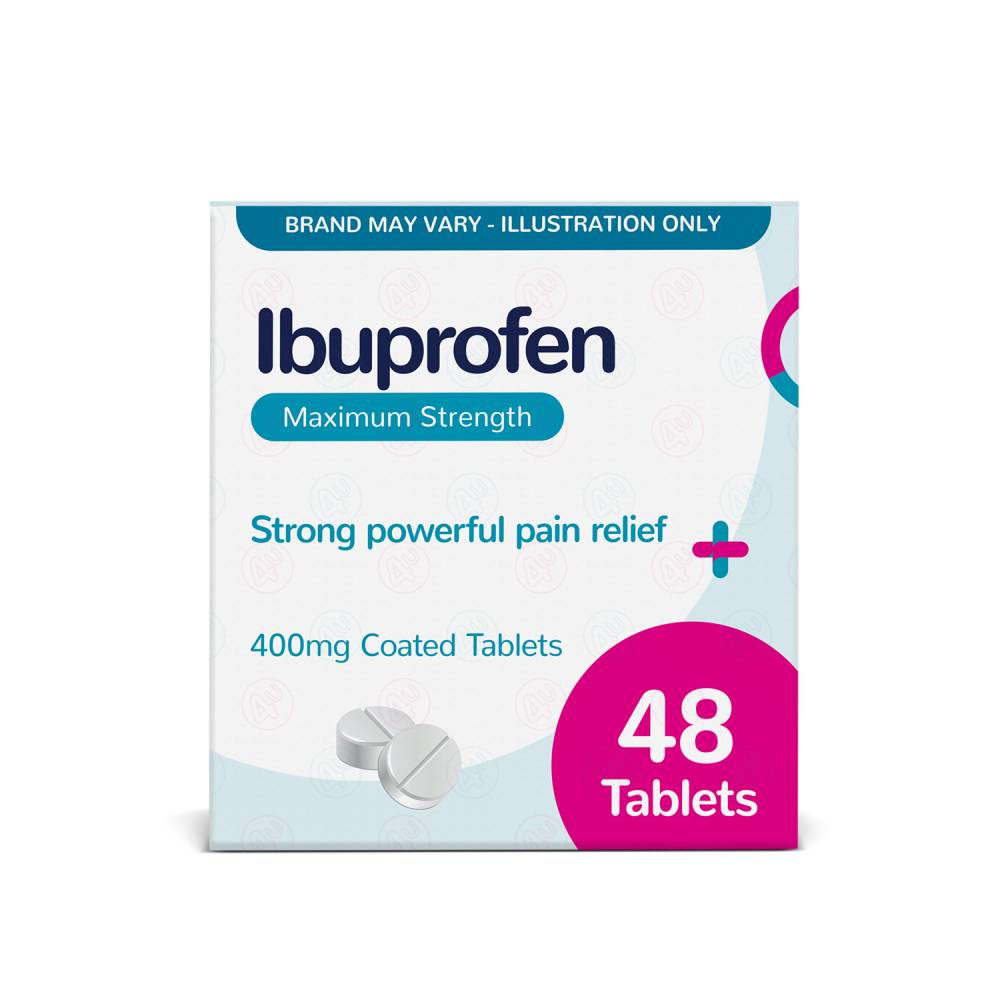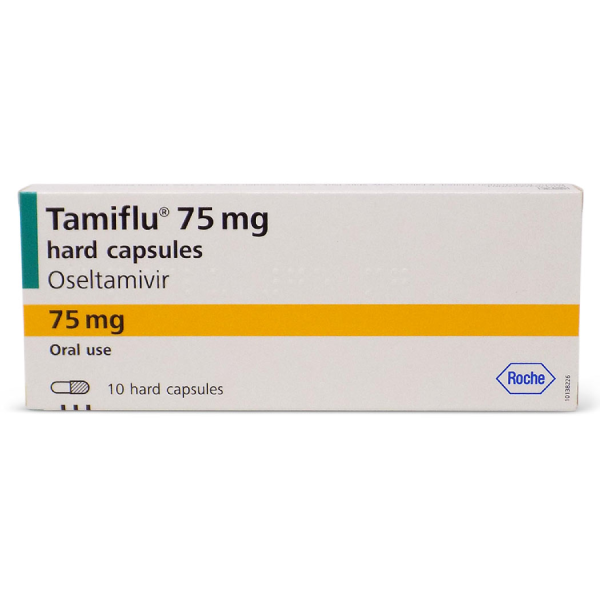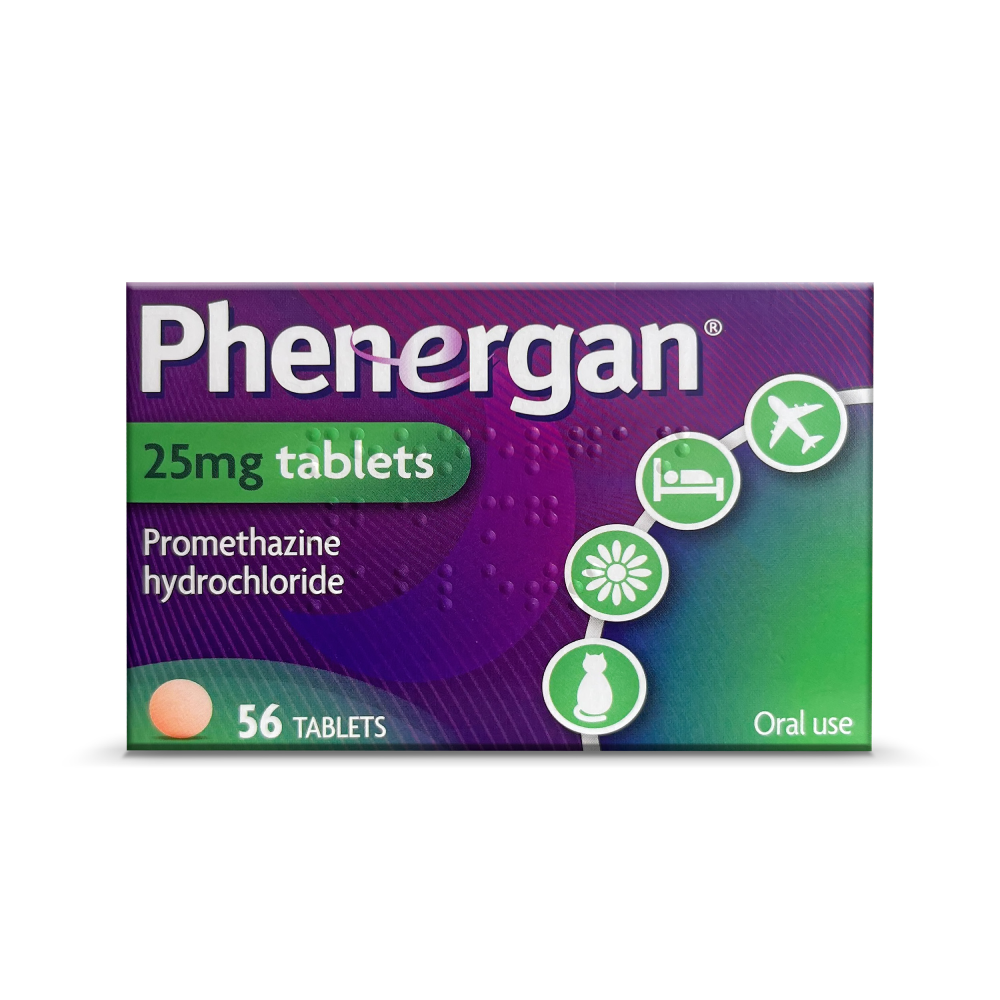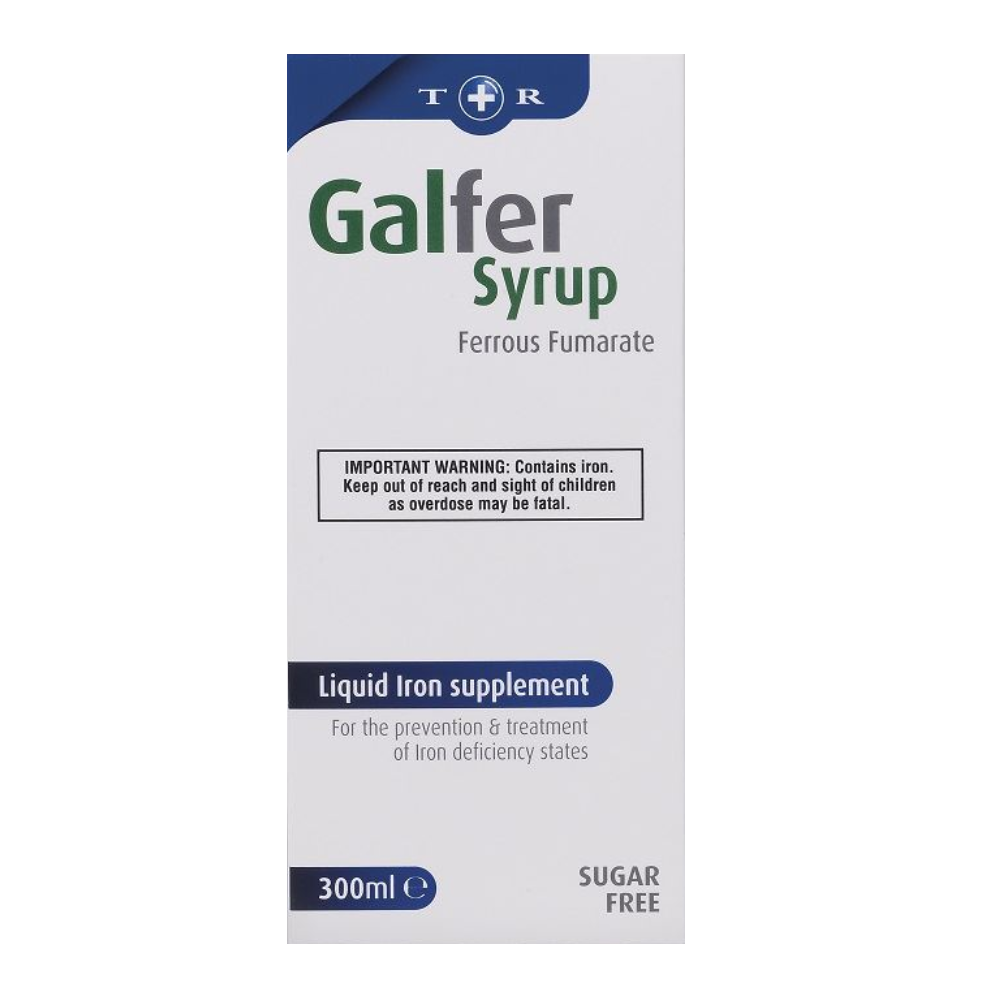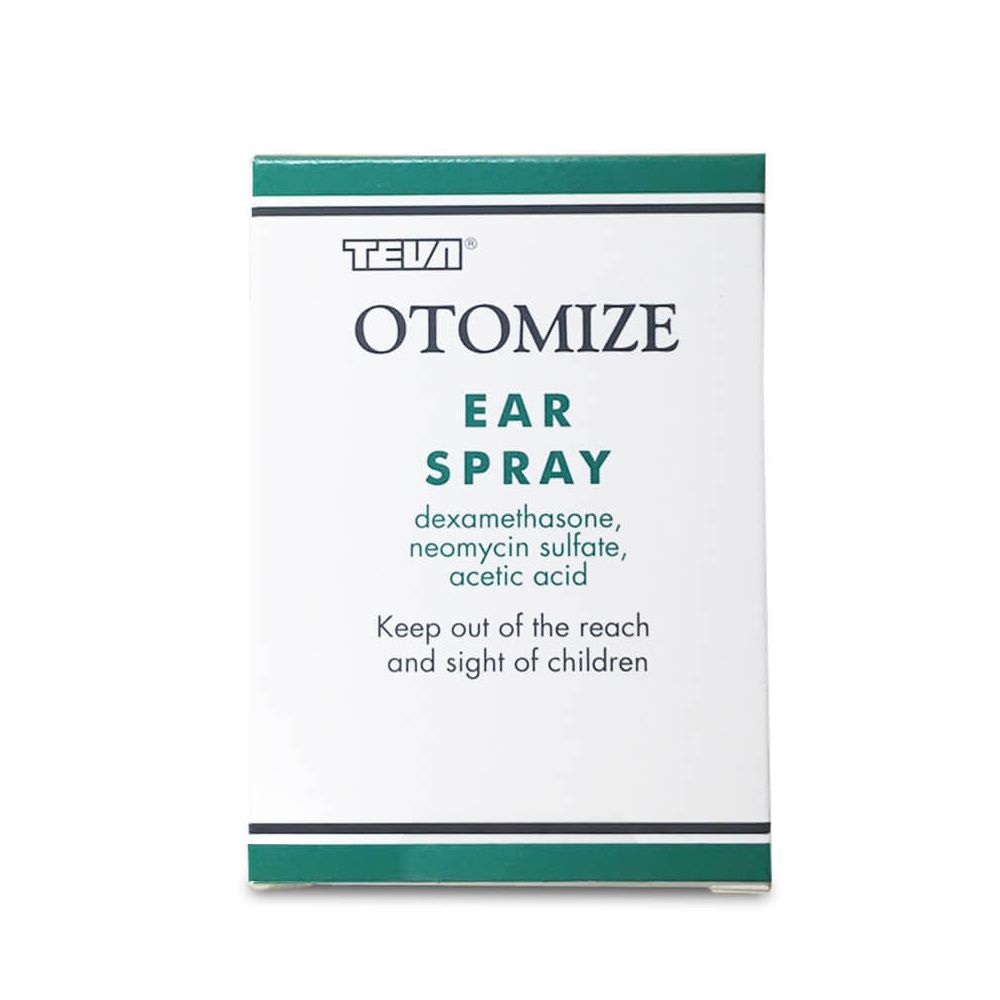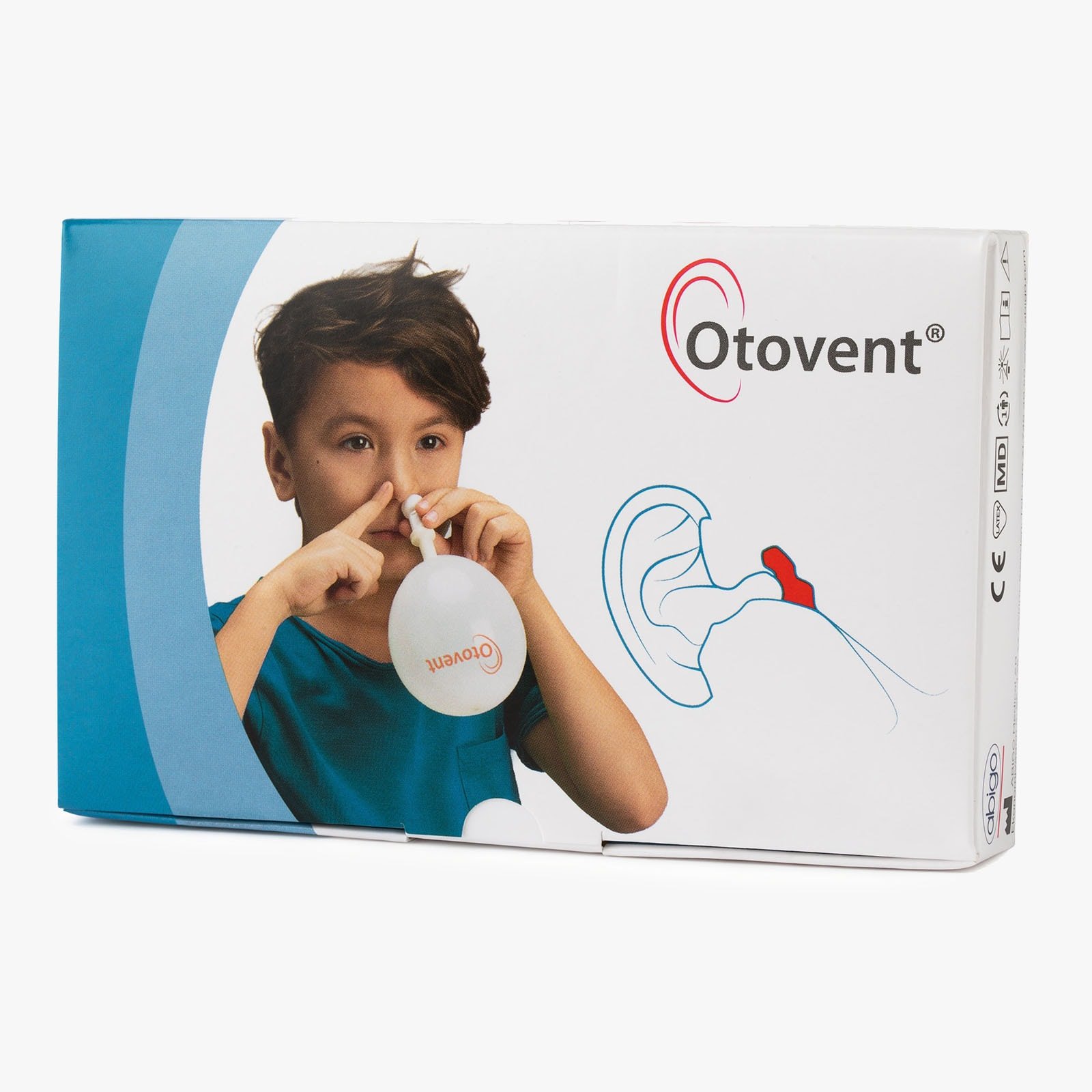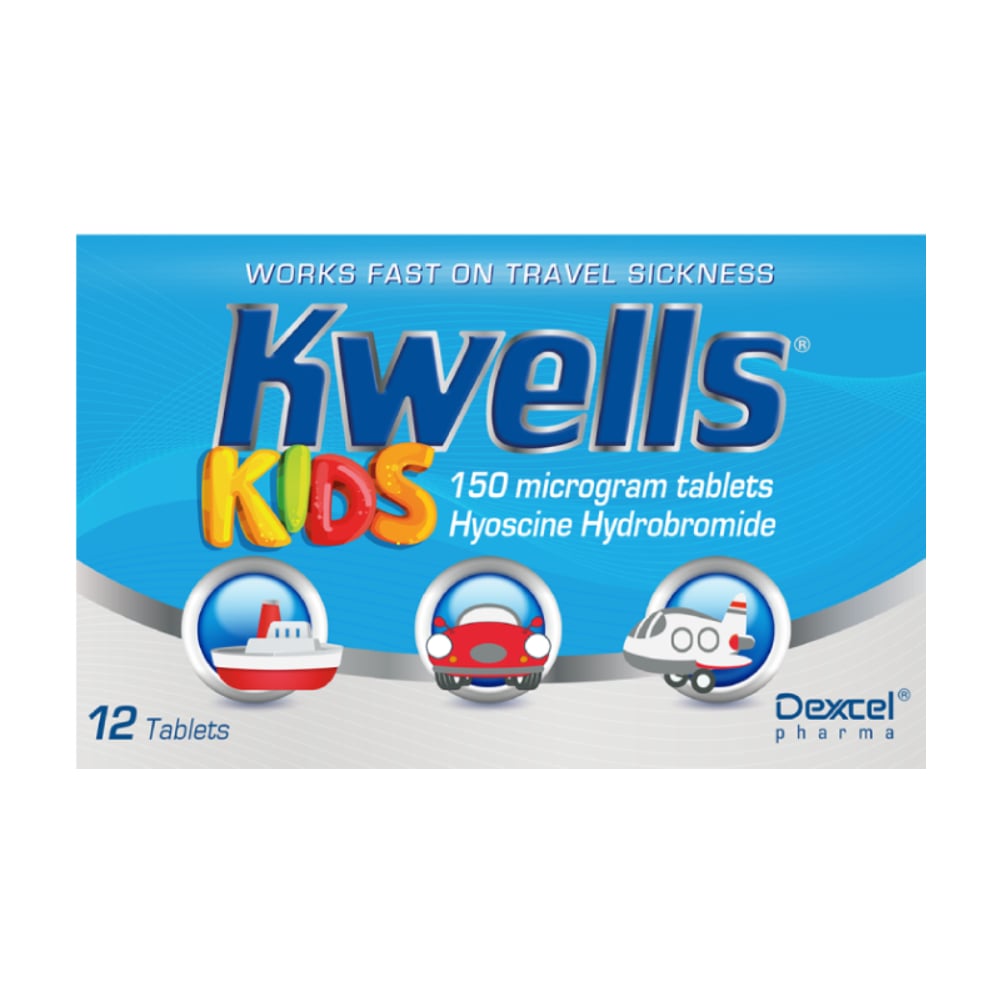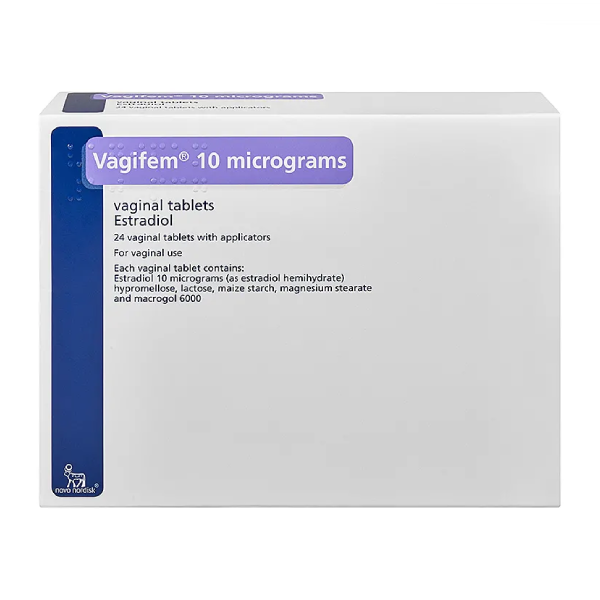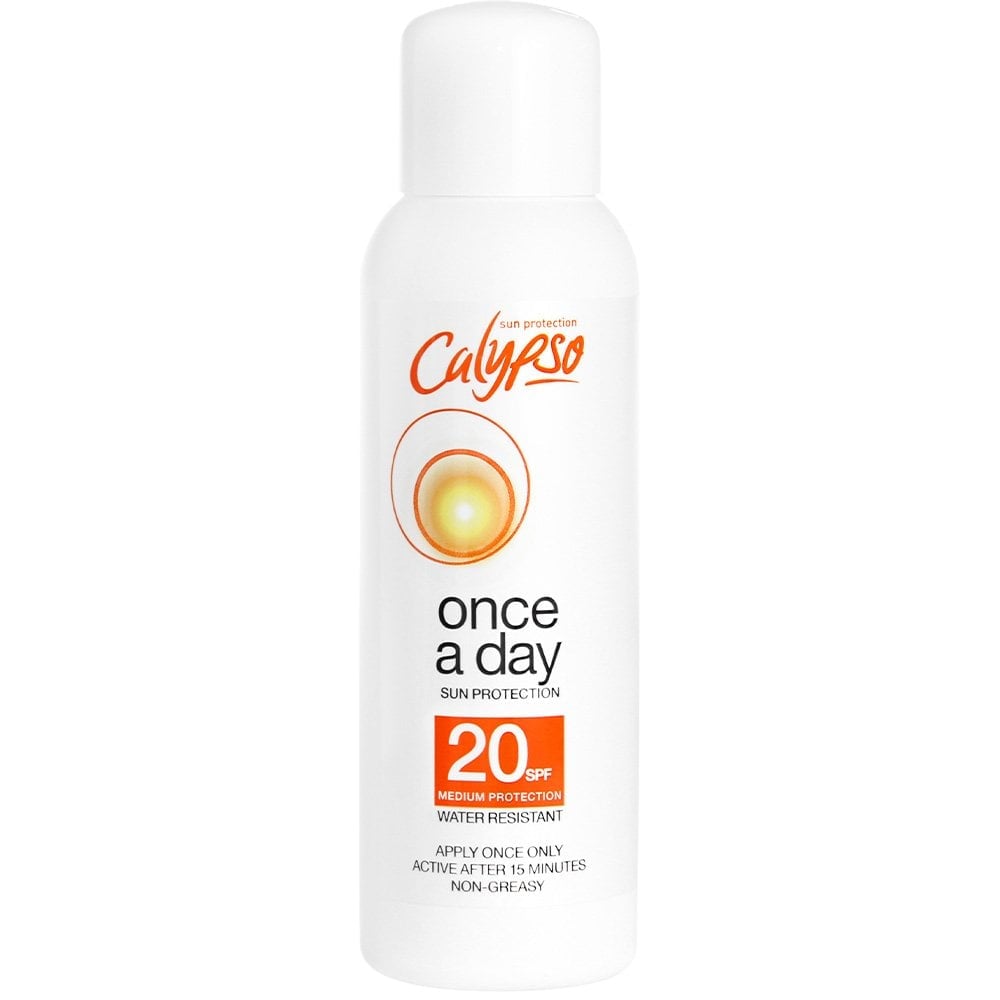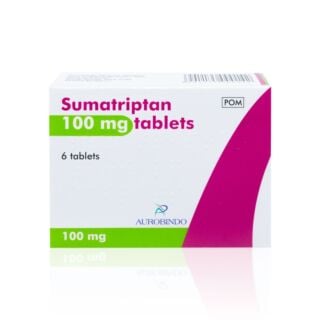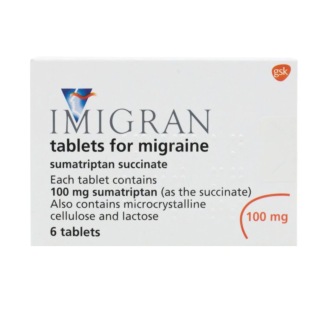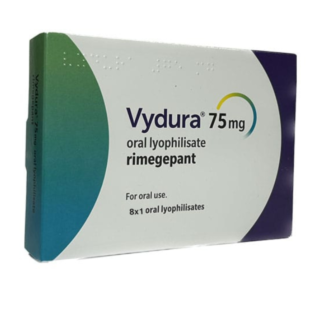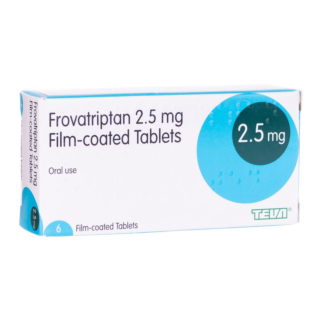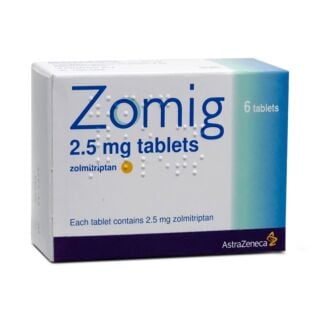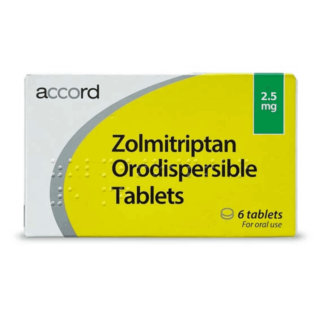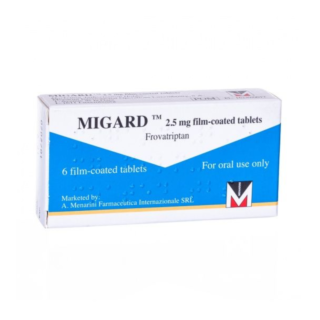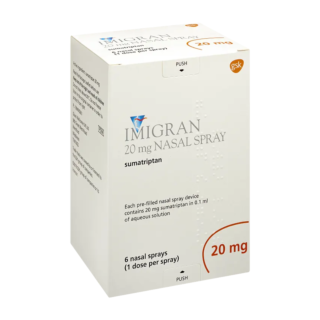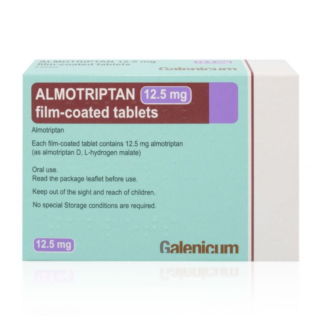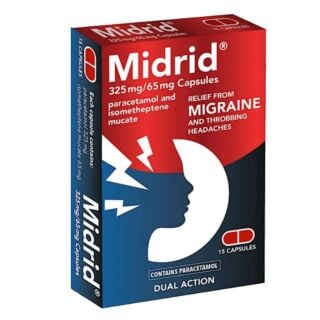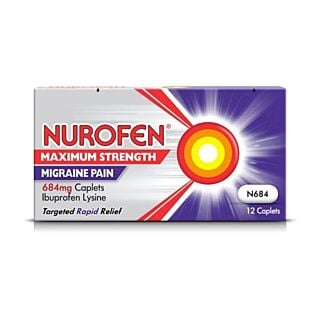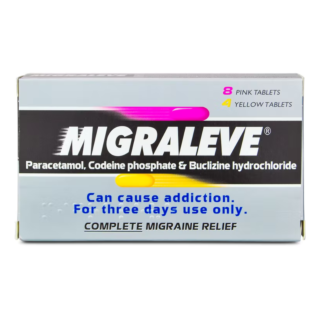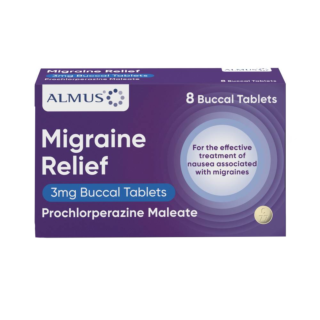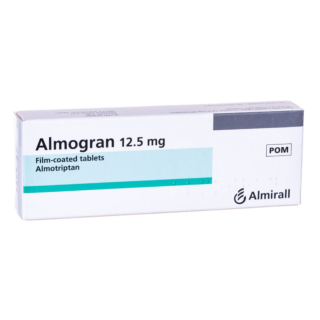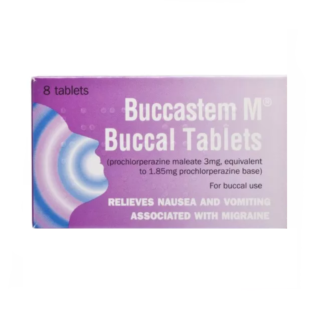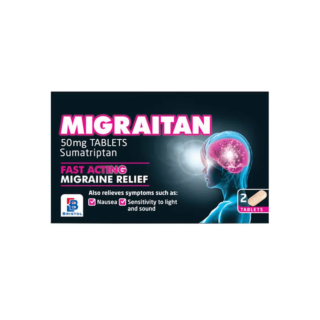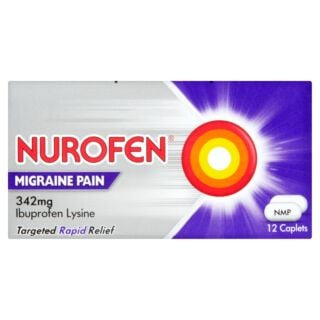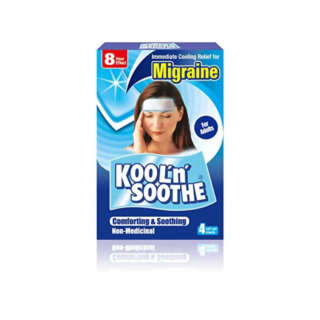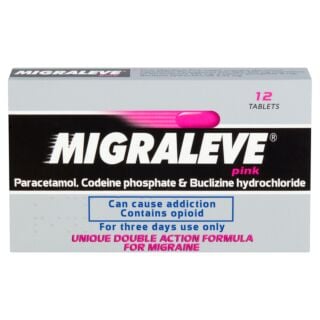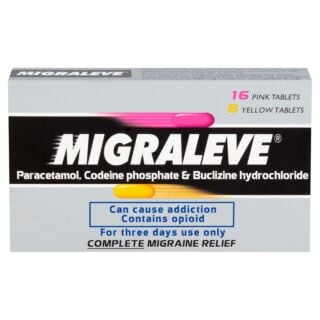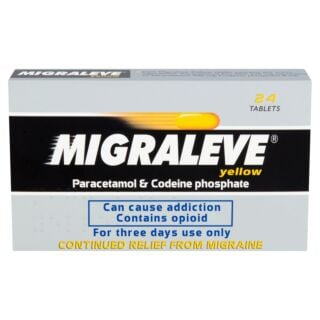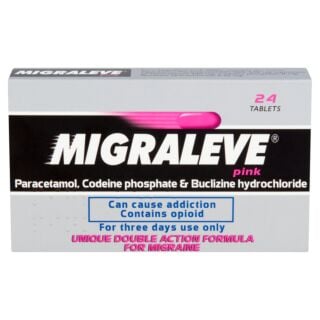Migraine
Migraines are a type of headache, but for sufferers that word barely does them justice.1,2,3 … Read More See less
Sufferers have described migraines as feeling like someone is using your head “like a drum’.4 As though ‘your head is really heavy, with pressure building up in your eyes, sinuses and temples’.4 One person said: ‘sometimes I can’t even walk and need to immediately lie down.’4
Affecting around one in seven people (approximately 10 million people in the UK), migraines are the seventh most common disability in the world.5 They are two to three times more common in women than men and occur most frequently in people aged 25 to 55.5
So, if you have migraines, and they are affecting your ability to live your life to the full, you’re not alone. Let’s find out what migraines really are, how long migraines last, what the different types of migraines are and how to find relief.
What are migraines?
Migraines are a painful, chronic (long-term) condition that causes attacks of a severe, throbbing pain that’s typically on one side of your head and gets worse with movement.1.4 Migraine attacks are also characterised by:4,6
- Sensitivity to light
- Sensitivity to smells
- Fatigue
- Nausea and vomiting
However, people who suffer from migraines experiences a different combination of symptoms.4
Migraine attacks usually last for between four hours and three days.4,6 Most people experience two to four migraines a month, but migraines can be defined based on frequency as:1,6
- Episodic migraine (low frequency) – less than 15 days per month (one to nine migraine days per month)
- Episodic migraine (high frequency) – less than 15 days per month (10 to 14 migraine days per month)
- Chronic migraine – at least 15 headache days per month, eight of which have features of a migraine
Migraine attacks can also occur with and without aura (a warning sign that you’re about to get a migraine).6,7 15–30% of people who get migraines experience aura.6
Stages of a migraine attack
The symptoms of a migraine attack can occur in four stages, though not everyone goes through all four.1,3 These include:1,3,8
Prodrome
This can begin between one and two days before a migraine headache begins. You might notice subtle symptoms that warn you you’re about to have a migraine attack, like:
- Being constipated
- Mood swings (irritability, depression, elation)
- Food cravings
- A stiff neck
- Peeing more often
- Fluid retention
- Yawning a lot
- Feeling more hungry or thirsty than usual
- Difficulty concentrating
- Fatigue
- Insomnia (trouble sleeping)
Aura
An aura can occur before or during a migraine. It consists of a group of neurological (sensory, motor and/or speech) symptoms, usually visual, that act as a warning sign of a migraine headache.
Symptoms begin gradually and last between 5–60 minutes. They might include:
- Visual changes, such as seeing shapes, bright spots or flashes of light
- Loss of vision
- Pins and needles in an arm or leg
- Weakness or numbness in the face or one side of the body
- Difficulty speaking
- Ringing in your ears (tinnitus)
- Trouble concentrating
- Muscle weakness
Headache
The part of a migraine attack that causes the head pain typically associated with migraines. A migraine headache may start on one side of the head and stay there, or it may shift to the other side. You may also have pain around your face, including your eyes and temple, sinuses, jaw and neck.
The pain can range from mild to severe and feel like:
- Throbbing
- Pulsing
- Pounding
- Dull
Postdrome
Once the headache stage ends, the postdrome stage can last for a few hours to up to 48 hours. Symptoms can feel similar to a hangover caused by alcohol, which is why the postdrome phase is known as a migraine hangover. You might feel tired and confused, but some people report feeling elated.
Types of migraines
Migraines are often categorised as episodic or chronic and with or without aura. But other types of migraines include:1,9–16
- Menstrual migraine – migraine attacks that tend to occur around your period due to your changing hormone levels. Typically, these occur from two days before up to the third day of your period
- Hemiplegic migraine – migraines that cause temporary weakness on one side of the body. The weakness usually goes within 24 hours
- Retinal migraine (ocular migraine or visual migraine) – migraines that cause temporary vision loss in one eye. This typically lasts between 10–20 minutes, but can last up to an hour
- Abdominal migraine – a common condition that mostly occurs in children and sometimes predicts the development of migraine headaches in adulthood. Though some adults can get abdominal migraine as well. Abdominal migraine causes attacks of stomach pain that last from two to 72 hours
- Migraine with brainstem aura – migraine that occurs with neurological symptoms including:
- Slurred speech (dysarthria)
- The sensation your surroundings are moving (vertigo)
- Ringing in your ears (tinnitus)
- Double vision (diplopia)
- Unsteadiness when you’re walking (ataxia)
- Fainting or periods of reduced consciousness (syncope)
- Pins and needles and/or numbness affecting both your arms and/or legs
- Vision changes
- Vestibular migraine – a type of migraine that causes vertigo, dizziness and balance problems, alongside other migraine symptoms
- Medication overuse headache – can occur if you are regularly taking high levels of medications due to a headache disorder (like chronic migraine). The overuse of medicines or painkillers leads to more headaches
What causes migraines?
Migraines are thought to be the result of abnormal brain activity which affects your nerve signals, chemicals and blood vessels.1,3,4 When you have a headache, specific nerves in your blood vessels send pain signals to your brain.1 This releases inflammatory substances into your brain’s nerves and blood vessels.1
We don’t know exactly what causes this brain activity.1 Changes in how the brainstem interacts with the trigeminal nerve, a major pain pathway, might be involved.3 Brain chemical imbalances—in serotonin, which helps regulate pain in your nervous system, and calcitonin gene-related peptide (CRGP), a chemical messenger—might be involved.3
If you are prone to migraines, there are certain triggers that can cause a migraine attack, including:1,3,4
- Stress
- Hormonal changes, due to periods or menopause (affecting around 39% of women, according to our latest menopause statistics report)
- Certain medications (oral contraceptives)
- Sleep changes (getting too much or too little sleep)
- Weather changes
- Tobacco
- Low blood sugar, due to missing a meal
- Bright lights, loud noises or strong smells
- Alcohol
- Caffeine
- Physical exertion
- Food additives (aspartame, a sweetener, and monosodium glutamate [msg], a preservative)
Genetics and migraines
Research has also indicated that genetics play a role.1,3,4 In fact, up to 80% of people with migraines have a first-degree biological relative with the condition.1 Having these genes is thought to make people more sensitive to specific migraine triggers.17
Migraines are thought to develop from several different genes coming together, rather than one specific gene mutation.17 However, even if you have all the genes that can cause migraines, you might not develop migraines.17 This is because migraines are a complex genetic disorder, caused by the interaction between your genetics and your environment.17 So, you may only develop migraines if you have a genetic predisposition and you encounter a trigger.17
However, hemiplegic migraines have been found to be caused by specific gene mutations—CACNA1A, ATP1A2 and SCN1.17 These genes influence how our ion channels—which can determine how easily activated our nerves are in response to stimuli—function.17 This is important because, in recent years, it has become clear that migraine is mainly a disorder of the nervous system.17
How to get migraine relief
There is no cure for migraine, but there are treatments available that can help to reduce the frequency and severity of attacks.1
The right migraine treatment for you will depend on your symptoms, how often you get migraine attacks and how bad they are.4 Migraine treatments can be divided into:1,4
- Acute migraine medications – designed to stop or limit the effect of an attack
- Preventative medications – if you have frequent migraine attacks that are having a big impact on your life
Your GP may also recommend that you make certain lifestyle changes to try and manage your migraine attacks.7 If lifestyle changes, acute medicines and preventative medicines do not work for you, you may be referred to a neurologist who can prescribe more advanced therapies.
Acute medicines
Acute medicines include:1,7,18–23
Painkillers
Such as paracetamol or non-steroidal anti-inflammatories (NSAIDs) like ibuprofen and naproxen.
These medicines tend to be most effective when taken at the first signs of a migraine attack. If you wait too long to take them, it may be too late for them to absorb into your bloodstream and ease your symptoms.
You shouldn’t take painkillers for more than 15 days per month as they can cause medication overuse headache.
Painkillers are safe to take during pregnancy.
Triptans
Such as sumatriptan, rizatriptan, zolmitriptan, frovatriptan, almotriptan, naratriptan and eletriptan.
Triptans are specific painkillers for migraines and are available as migraine tablets, an injection and a nasal spray. They work by narrowing the blood vessels in your brain.
You should take a triptan when the migraine headache is just beginning to develop. If you take a triptan too early, during the aura stage, they’re not as effective. If the triptan works but the headache returns, you can take another dose two to four hours later. If the triptan didn’t ease the migraine at all, there is no need to take a second dose as it is unlikely to work.
Taking triptans more than two to three times a week can cause medication overuse headaches.
Side effects include a warm-hot sensation, tingling, flushing, light-headedness, nausea and dry mouth.
Triptans are safe to take during pregnancy.
Gepants
Such as rimegepant and atogepant.
Gepants are a specific painkiller for migraine headaches and are available as migraine tablets. They work by blocking the action of CRGP and stopping the transmission of pain signals.
Gepants might be prescribed if you’ve tried triptans and they haven’t helped your migraine or if you can’t take them for another reason. You should take a gepant as soon as a migraine headache starts. Alternatively, gepants can be used as a preventative medicine and taken every day or every other day.
Gepants do not seem to cause medication overuse headache.
Side effects include nausea, fatigue and constipation. Gepants are not recommended during pregnancy.
Anti-emetics
Such as prochlorperazine, domperidone or metoclopramide.
These medicines can help with the nausea and sickness you may experience as part of a migraine attack. They can also help any other medicines you’re taking to work better and are available as a tablet or an injection.
A migraine can cause absorption from your gut to slow down, making it harder to absorb medicines you’ve taken by mouth. Anti-sickness medicine can therefore help your body to absorb painkillers.
You should take an anti-emetic as soon as your migraine symptoms begin.
Side effects include drowsiness and diarrhoea.
Preventative medicines
Preventative medicines include:1,7,18,19,24
- Propranolol – usually used to treat high blood pressure and angina, as it slows your heart rate. Side effects include cold hands and feet, pins and needles, problems sleeping, fatigue and light headedness
- Tricyclic antidepressants – like amitriptyline or nortriptyline. These are usually used to treat depression. Side effects include drowsiness, a dry mouth, weight gain and difficulty peeing
- Topiramate – developed to prevent seizures in people with epilepsy but is now more commonly used to prevent migraines. Side effects include decreased appetite and weight loss, nausea and vomiting, constipation or diarrhoea, memory problems and difficulty sleeping
- Candesartan – usually used to treat high blood pressure. Side effects include light headedness due to low blood pressure. This should not be used if you’re pregnant or trying for a baby
Lifestyle changes
If your migraines have clear triggers, the first step to preventing them is to avoid those triggers.1 To help you do this, you may be recommended to keep a migraine journal, so you can identify any patterns.1
It’s also a good idea to make sure you:1,18,25
- Eat regularly
- Exercise often
- Stay well hydrated
- Limit your caffeine intake
- Reduce how much alcohol you drink
- Practice good sleep hygiene
In addition, you can try:1,18,25–29
- Taking supplements – magnesium, vitamin B2 (riboflavin) and coenzyme Q10 (CoQ10). These have all been found to reduce the frequency and severity of migraine attacks
- Acupuncture – inserting fine needles into different acupuncture points in your body, like your head, arms, legs, hands and feet. Acupuncture can help you to feel less stressed
- Relaxation techniques – meditation and yoga, to help manage anxiety and stress
Advanced therapies
A neurologist may prescribe:18,30,31–32
- Botulinum toxin type A (Botox) – a type of neurotoxin (nerve toxin) that paralyses (relaxes) muscles. Botox is only approved on the NHS for the treatment of chronic migraine in adults. Treatment involves having a series of 31 to 39 injections. Botox has been found to reduce headaches per month by 30–50%
- Calcitonin Gene-Related Peptide (CGRP) – the first medicines specifically designed to target migraine CGRPs are monoclonal antibodies (proteins made in a lab to target specific cells). They are given by an injection into the skin on your thigh or abdomen (tummy) once a month or once every three months. They’ve been found to reduce migraine days per month by at least 50%
- Gepants – sometimes GPs can prescribe gepants, but in some circumstances you may need to be referred to a neurologist
Sources
- https://my.clevelandclinic.org/health/diseases/5005-migraine-headaches
- https://www.mayoclinic.org/diseases-conditions/migraine-headache/symptoms-causes/syc-20360201
- https://migrainetrust.org/understand-migraine/what-is-migraine/
- https://www.womenshealthmag.com/health/a41449033/what-does-a-migraine-feel-like/
- https://cks.nice.org.uk/topics/migraine/background-information/prevalence/
- https://cks.nice.org.uk/topics/migraine/background-information/definition/
- https://www.nhs.uk/conditions/migraine/
- https://migrainetrust.org/understand-migraine/stages-of-a-migraine-attack/
- https://migrainetrust.org/understand-migraine/types-of-migraine/
- https://migrainetrust.org/understand-migraine/types-of-migraine/menstrual-migraine/
- https://migrainetrust.org/understand-migraine/types-of-migraine/hemiplegic-migraine/
- https://www.nhs.uk/conditions/retinal-migraine/
- https://migrainetrust.org/understand-migraine/types-of-migraine/abdominal-migraine/
- https://migrainetrust.org/understand-migraine/types-of-migraine/migraine-with-brainstem-aura/
- https://migrainetrust.org/understand-migraine/types-of-migraine/vestibular/
- https://migrainetrust.org/understand-migraine/types-of-migraine/medication-overuse-headache/
- https://migrainetrust.org/understand-migraine/genetics-and-migraine/
- https://www.nhsinform.scot/illnesses-and-conditions/brain-nerves-and-spinal-cord/migraine-treatment-and-prevention/
- https://cks.nice.org.uk/topics/migraine/management/adults/
- https://www.torbayandsouthdevon.nhs.uk/uploads/25467.pdf
- https://www.nhs.uk/medicines/sumatriptan/about-sumatriptan/
- https://migrainetrust.org/live-with-migraine/healthcare/treatments/gepants/
- https://migrainetrust.org/live-with-migraine/healthcare/treatments/acute-medicines/#page-section-3
- https://www.nhs.uk/medicines/propranolol/
- https://cks.nice.org.uk/topics/migraine/management/adults/
- https://migrainetrust.org/live-with-migraine/healthcare/treatments/supplements/
- https://migrainetrust.org/live-with-migraine/healthcare/treatments/acupuncture/
- https://migrainetrust.org/news/self-care-for-migraine-your-top-tips/
- https://migrainetrust.org/news/migraine-and-anxiety/
- https://migrainetrust.org/live-with-migraine/healthcare/treatments/botox/
- https://migrainetrust.org/live-with-migraine/healthcare/treatments/calcitonin-gene-related-peptide-monoclonal-antibodies/
- https://migrainetrust.org/live-with-migraine/healthcare/treatments/gepants/#page-section-3

Free delivery when you spend over £30

100% discreet delivery for every item ordered

Fully regulated UK pharmacy
What is a cluster headache?
Cluster headaches are a rare form of headache that occurs in clusters for around a month or 2 around the same time of year.
They can cause intense pain around one eye and can often be experienced with other symptoms such as watering or redness around the eye and a blocked or runny nose.
Conventional pain relief doesn’t usually treat the symptoms of cluster headaches, but your doctor or prescriber would be able to provide treatments to ease the pain.
What is the difference between a headache and a migraine?
Headaches are one of the most common symptoms of migraines, but having a headache doesn’t necessarily mean you have a migraine, in fact, you can sometimes have a migraine without a headache.
If you’re unsure whether you have a headache or a migraine, the first thing to consider is whether you have any other symptoms, if you just have a headache by itself, then you probably don’t have a migraine.
You should also assess how bad your headache is, as migraine headaches can be severe, whereas normal headaches are usually less painful.
If you’re experiencing regular headaches or think you may be having migraines speak to a medical professional so they can work out what’s going on and recommend any suitable treatments that could help.
What is a migraine?
What are migraine auras?
Migraine auras are like warning signs that some people experience before they have a migraine, although in some cases they can be more uncomfortable than the migraine itself.
They usually begin up to an hour before you get your migraine headache, although some people notice changes in their mood or energy levels even before this.
Auras usually take around 5 minutes to develop to their peak, with some of the most common symptoms you’ll experience including:
- Visual problems, such as seeing zig-zags, flashing lights, blind spots, or blurred vision
- Numbness, tingling, or pins and needles in one hand, which will usually move up your arm before affecting your face and tongue
- Feeling dizzy
- Losing consciousness, although this won’t usually happen
What are the best migraine treatments?
Migraines are a common problem, and while there isn’t a cure, there are several treatments available to help ease the symptoms.
Firstly, you should try regular painkillers like paracetamol, aspirin and ibuprofen to see if they can relieve your symptoms.
If these aren’t helping, a type of medicine called triptans are formulated specifically for migraine headaches.
What causes migraines?
Although the exact cause of migraines isn’t known, there are lots of triggers that people have noticed that tend to induce a migraine.
These triggers are different for everyone, so it can be wise to keep a diary of when your migraines happen so you can try to work out when and what triggers them for you.
Some of the most common migraine triggers include hormonal changes, emotional triggers, tiredness, dehydration, not eating regular meals, alcohol or caffeine, bright lights or loud noises and certain medications like the contraceptive pill.

